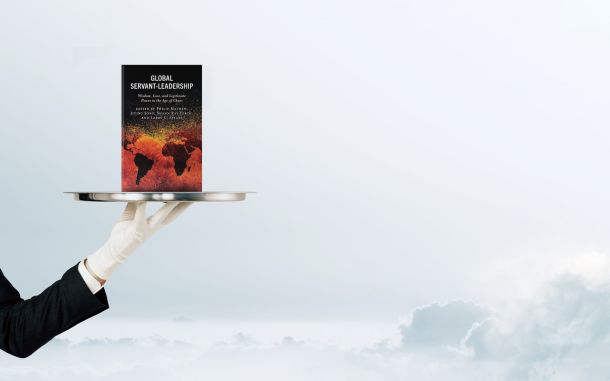Divergent Views, Same Purpose

In This Article
-
For centuries, philosophers have illuminated their own time as they shared their thoughts on the universe, life, and science.
-
Many thinkers and philosophers were killed because of their ideas, while some were exiled, and some had to leave their countries for their own safety.
-
Fethullah Gülen is effective in seizing upon the statements of philosophers critical of science, and the developments in modern science that contradict earlier discoveries or find agreement with the Islamic viewpoint.
Philosophy is described as the rational, abstract, and methodical consideration of reality as a whole or of fundamental dimensions of human existence and experience. The term philosopher, from ancient Greek, is a person who practices philosophy, especially one who deals with or learns philosophy as an academic discipline. Philosophy is also used in the sense of “wisdom” because when philosophers are mentioned more “wise” people come to our minds. Philosophical methods include questioning, critical discussion, rational argument, and systematic presentation [1, 2]. For centuries, philosophers have illuminated their own time as they shared their thoughts on the universe, life, and science.
However, this was not always the case: many thinkers and philosophers were killed because of their ideas, while some were exiled, and some had to leave their countries for their own safety. Between the two world wars many German scientists were forced to leave their country to save their lives and continued their services in exile for other nations. For instance many German academics who escaped from the chaotic environment of Germany in those years ended up in Turkey where they made great contributions to the university reform that started in 1933 [3]. Ironically, after 2016, many Turkish academic staff had to leave Turkey and migrated to Western countries such as Germany, Sweden, and England.
I am an academic who left his country and came to the United Kingdom in 2020. I recently read a biographical work about Fethullah Gülen. Among many aspects of his life, I was particularly impressed by the fact that Gülen, as an imam with supposedly a classical training, read both Eastern and Western classics and examined western philosophy during his youth.
David Hume, whose name I saw for the first time in the same book on Gülen, was one of the most important names of Western philosophy as a Scottish philosopher, economist, and historian who lived in the 18th century [4]. Gülen, who read almost all the important western classics tried to get to know Shakespeare, Balzac, Voltaire, Rousseau, Kant, Zola, Goethe, and also read Russell, Pushkin, and Tolstoy. Many philosophers and thinkers are identical with the nation or society in which they grew up. Greece comes to mind when they say Plato, and China when they say, Confucius. Shakespeare brings to mind England, Balzac France, and Goethe Germany. However, as in the example of Avicenna and Einstein, some philosophers or scientists also acquired a universal identity.
I was surprised that the names of David Hume, who lived in Scotland in the 18th century, and Fethullah Gülen, who still lives in America, are on the “philosophers of religion list” together [5]. During my visit to Edinburgh, a statue of an imposing figure reclining in a chair on the Royal Mile further increased my curiosity about him. The Scottish philosopher David Hume was probably one of the most important philosophers of his time, known as the Age of Enlightenment. Since he was a historian, economist, librarian, and essayist as well as a philosopher, who is best known today for his highly influential system of philosophical empiricism, skepticism, and naturalism.
Although they have lived in different geographical and time periods, philosophers have always been influenced by each other. Albert Einstein, in 1915, wrote that he was inspired by Hume’s positivism when formulating his theory of special relativity. Similarly, Immanuel Kant credits Hume as the inspiration who had awakened him from his “dogmatic slumbers” [4]. Although some Western writers argue that Imam Ghazali declared war on philosophy with his work “The Inconsistency of Philosophers” (Tahafut al-Falasifa) and that’s why the environment of free thought has disappeared in the Islamic world; those who approach the subject more broadly and objectively state that Imam Ghazali influenced names such as Pascal and Enlightenment philosopher David Hume in the West [6].
Hume’s thinking showed the crucial importance of logic and evidence in deciding what conclusions could be reached within human understanding and pointed out its probable limits. According to him, it is in vain to expect that any logic, which speaks not to the affections, will ever engage him to embrace sounder principles [7]. Here are several quotes from David Hume [8]:
“Be a philosopher; but, amidst all your philosophy, be still a man.”
“Beauty in things exists in the mind which contemplates them.”
“Generally speaking, the errors in religion are dangerous; those in philosophy only ridiculous.”
“Custom is the great guide to human life.”
“Liberty of any kind is never lost all at once.”
David Hume’s philosophical works include A Treatise of Human Nature, An Enquiry Concerning Human Understanding, An Enquiry Concerning the Principles of Morals, and Dialogues Concerning Natural Religion. In addition, he wrote the massive six-volume The History of England, which became a bestseller and the standard history of England in its day. Being his very important philosophical achievement, A Study of Human Understanding and a Study of Moral Principles has been accepted as one of the most important in the history of Western philosophy. Hume is one of the world’s great philosophical voices and will remain an outstanding philosopher.
Fethullah Gülen, on the other hand, is an influential scholar from the Muslim world, and have inspired millions to take part in a movement of intercultural-interfaith dialogue and educational activism. Gülen movement represents novel approaches to the synthesis of faith and reason, education, spirituality, and peaceful co-existence in diverse societies [9]. In his writings he touches on a variety of disciplines from economics, philosophy, sociology, history, religion, to literature [10]. Although he also read Western philosophy, thought, and literature, his thinking is not governed or shaped by Western thought [11]. However, Gülen is effective in seizing upon the statements of philosophers critical of science, and the developments in modern science that contradict earlier discoveries or find agreement with the Islamic viewpoint. It has also been argued that in the mold of “new intellectuals,” Gülen combines the ideas of classical and modernist Islamic thought with references to secular thinkers like Albert Einstein, David Hume, and Immanuel Kant. Remarkably, he is careful to choose sources and cite evidence in agreement with the Islamic interpretation of nature. He cites Hume, who argues that an event recurring repeatedly in the past does not necessitate its repetition in the future given similar circumstances. Gülen expands upon Hume’s argument to say that the forces of nature cannot be understood by reason alone and must be understood within a larger metaphysical context [12, 13].
His philosophy transcends commonly held dichotomies. He reconciles science and religion, sacred and profane, mind and heart, east and west, and modernity and tradition [14]. At the core of his philosophy lies the human being and their education. He argues that the right type of education and socialization plays a key role in bringing up loving, compassionate, and peaceful human beings. The core values of his thinking are “hospitality, wisdom, compassion, and charity … grounded in love” [15]. According to Gülen, science and knowledge should seek to uncover the nature of humanity and the mysteries of creation. Any knowledge, including scientific knowledge, is commendable especially if it sheds light on the mysteries of human nature and enlightens aspects of existence left in the dark. Again, according to him, “There are many scientists in many different countries in today’s world but even if they were to work all together they are not enough to establish a new, happy, and seamless world.” For this reason, he argues that there is a need for a new way of thinking, a new approach to science, a new life philosophy, and new educational institutions [16]. Gülen promotes trustworthiness, compassion, integrity, hard work, dedication, prudence, humility, and altruism and that these values must be taught by living a life that exemplifies them [17, 18].
In the philosophy of Gülen, education is a life-long process of transformation. Gülen’s philosophy for peace involves achieving inner and outer peace and is based primarily on transforming the individual. He argues that peace on earth can be achieved by peaceful individuals [19].
Jon Paul, the author of the first critical English-language biography of Gülen, says that although there are very distinguished thinkers who analyze, criticize and deconstruct phenomena and systems in today’s world, very few of them are still able to actively offer alternatives and implement their ideas; Fethullah Gülen can be considered among these very few intellectuals [20]. Indeed, Gülen was among the world’s top 100 intellectuals selected by “Foreign Policy” in 2008. It is understood that Gülen, who was influenced by the intellectuals of his age by reading both local and global philosophers, also greatly benefited from the intellectual legacy of the influential Sufi scholar and writer Bediüzzaman Said Nursi [21]. Like Nursi, who was forced to exile and isolation in his country and imprisoned for many years, a great portion of Fethullah Gülen’s life, especially the last two decades, have been spent in exile as he faces unbelievable accusations in his own country.
Conclusion
The example of Gülen and Hume being listed in the philosophers of religion inspires me to think how knowledge and wisdom are fruits of all humanity. Although the religion of Islam emerged in the Arabian Peninsula, the philosophy, logic, and systematicity that existed in its essence and spirit emerged in the Khorasan. German philosopher J. W. Goethe says that “Science and art belong to the whole world, and the barriers of nationality vanish before them.” According to French chemist Pasteur, “Science knows no country, because knowledge belongs to humanity, and is the torch which illuminates the world.”
References
- Britannica, The Editors of Encyclopaedia. "Philosophy". Encyclopedia Britannica, 20 Aug. 2020, https://www.britannica.com/topic/philosophy. Accessed 28 July 2021.
- “Philosopher” Wikipedia, Free encyclopedia, https://en.wikipedia.org/wiki/Philosopher. This page was last edited on 18 July 2021.
- Aras, Şükrü., Armutcu, Ferah., Dinç, Gülten. "In the history of Department of Biochemistry of Istanbul Medical Faculty (1933–1957) three German scientists; Werner Lipschitz, Felix Haurowitz and Zdenko Stary. Turkish Journal of Biochemistry 40;5 (2015) 423-430.
- “David Hume” Wikipedia, Free encyclopedia, https://en.wikipedia.org/wiki/David_Hume. This page was last edited on 25 July 2021.
- “List of philosophers of religion” Wikipedia, Free encyclopedia. This page was last edited on 5 October 2020, https://en.wikipedia.org/wiki/List_of_philosophers_of_religion.
- “Al-Ghazali” Wikipedia, Free encyclopedia, https://en.wikipedia.org/wiki/Al-Ghazali. This page was last edited on 15 July 2021.
- David Hume: An enquiry concerning human understanding. Edited by Millican Peter. Oxford University Press, July 10, 2008.
- David Hume - Quotes. https://www.goodreads.com/author/quotes/45726.David_Hume. Accessed July 11, 2021.
- Gülen M. Fethullah. Pearls of Wisdom. Tughra Books, Abridged edition 2007.
- Yucel, Salih. 2014. “Gulen as a spiritual leader in a global Islamic context.” In Salih Yucel & Ismail Albayrak (Eds.) The Art of Coexistence: Pioneering Role of Fethullah Gulen and the Hizmet Movement. Tughra Books.
- Hermansen, Marcia. (2015) “Who is Fethullah Gülen: An Overview of His Life”. In Hizmet means service: perspectives on an alternative path within Islam, ed. Martin E. Marty. Oakland, CA: University of California Press.
- Yavuz, Hakan. “The Gülen Movement: The Turkish Puritans,” in Turkish Islam and the Secular State. Yavuz and Esposito, eds. (Syracuse: Syracuse University Press), 2003.
- Saritoprak, Zeki and Sidney Griffith. Fethullah Gülen and the ‘People of the Book.’ The Muslim World 2005; (95): 329-340.
- Khan, Maimul Ahsan. The vision and impact of Fethullah Gülen. New York: Blue Dome Press, 2011.
- Yaman, Adnan. 2020. “Addressing anti-foreigner sentiments in Europe: Fethullah Gulen’s philosophy of peace, Master’s Thesis, University of Jaume I.
- Gulen M. Fethullah. Toward a Global Civilization of Love and Tolerance. The light, Inc. 3r impression New Jersey, 2006.
- Gage, Tom. Gülen's dialogue on education: A caravanserai of ideas. Seattle: Cune Press, 2014.
- Conway, Trudy D. Cross-cultural dialogue on the virtues: the contribution of Fethullah Gülen. London and New York: Springer Science & Business Media, 2014.
- Esposito, John and Ihsan Yilmaz. Islam and peacebuilding: Gülen movement initiatives. New York: Blue Dome Press, 2010.
- Pahl, Jon. Fethullah Gülen: A Life of Hizmet. New Jersey: Blue Dome Press, 2019.
- Greg, Barton. Fethullah Gülen and Said Nursi “Muslim world in transition: Contributions of the Gulen Movement” 2007, London. https://www.gulenmovement.com/fethullah-gulen-and-said-nursi.html. Accessed July 28, 2021.









